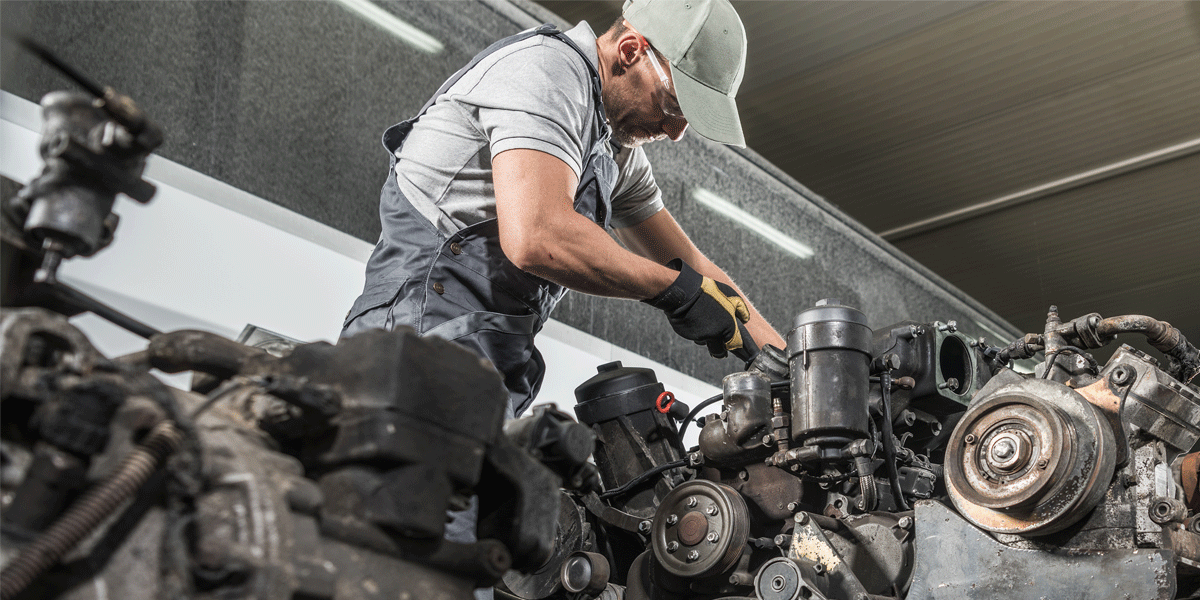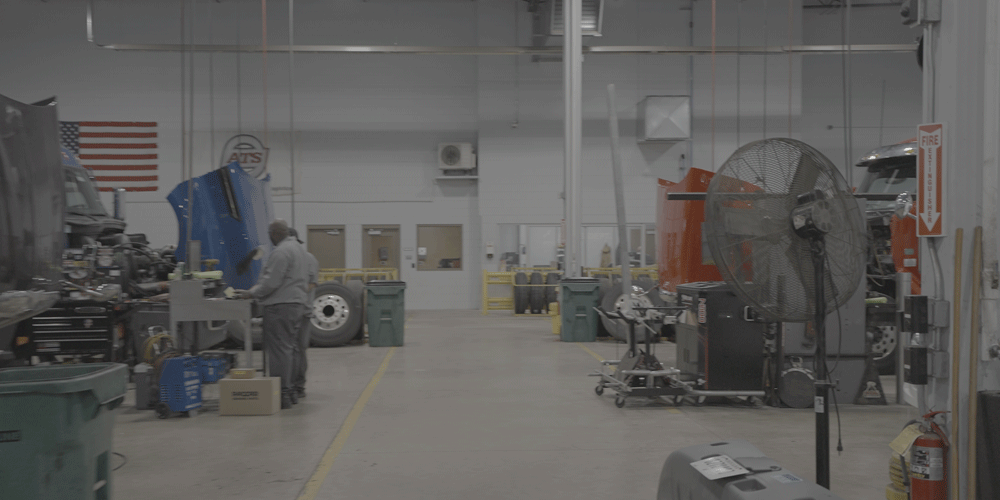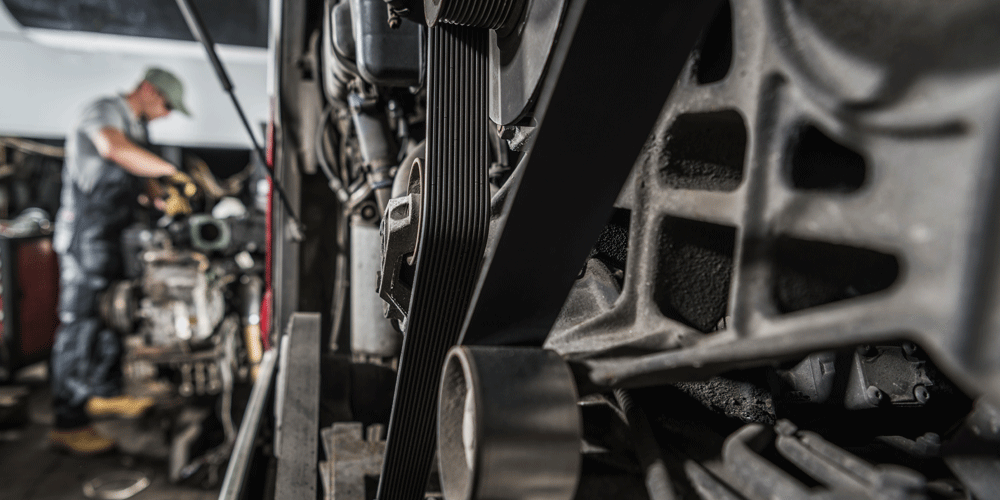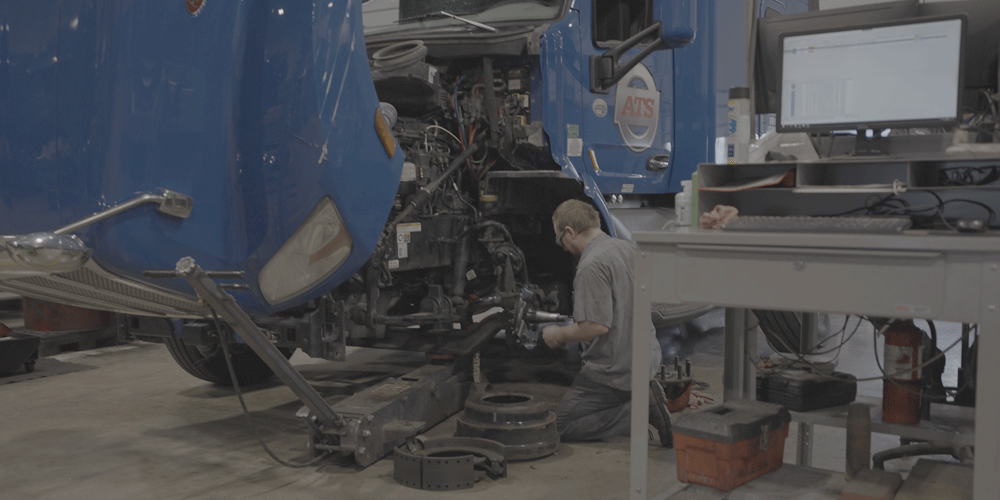
When you're on the hunt for a new job as a diesel mechanic, it's essential to understand and compare compensation packages to determine what suits you best. Shops have various compensation structures, and each comes with its own set of benefits for diesel mechanics.
As a diesel mechanic, you probably have multiple job offers lined up in front of you. If you’re looking to build a stable career and advance to the top of the pyramid, you need to find a company that can give you all that and more. After all, no one likes hopping from job to job. Researching and repeatedly interviewing is never fun.
I used to be a mechanic before I started teaching maintenance classes at St. Cloud Technical College. Now, as a senior talent acquisition specialist at Anderson Trucking Service (ATS), I focus on recruiting maintenance professionals across our organization. It’s my goal to help you start or grow your career in the maintenance profession.
In this article, I’ll delve into the different aspects of compensation packages, such as pay structure, benefits and incentives to help you make an informed decision.
Pay Structure
There are two primary pay structures for diesel mechanics: hourly pay and flat-rate pay. On top of that, incentive pay might be offered. Some of these pay structures are dependent upon your efficiency as a diesel mechanic, so be sure to consider that when determining which company will offer you the best pay.
Let’s first talk about the two base pay structures.
Hourly Pay
One of the most common pay structures for diesel mechanics is a base hourly wage. Based on your experience and tenure, you’ll receive an hourly rate. The base wage is the guaranteed amount you'll receive for your regular hours worked.
With an hourly rate, you can count on a steady paycheck. You aren’t incentivized to work faster or to complete a certain number of jobs. You’re simply paid for the hours you’re on the clock.

Flat-Rate Pay
Flat-rate pay is more prevalent in the automotive industry but can occasionally be found in the diesel sector. In this system, mechanics are paid solely based on the billable time for each task they complete.
Each task is attached to a timeframe estimate of how long it should take to complete (based on how long it takes on average to perform that task). Then, mechanics are paid according to the number of jobs they complete over a set period.
This system is advantageous for experienced, efficient mechanics who can complete jobs quickly. For example, if a mechanic finishes a job in less time than the billable hours assigned to it, they’re still paid for the full billable hours. Let’s say a brake job takes four billable hours, but you can do it in two. You’d still be paid for those four hours.
While this system can be lucrative for efficient mechanics, it may not be suitable for those who are less experienced or when there's insufficient work available. For example, maybe it takes you six hours to do a brake job, but you’ll only be paid for four. During slow times, this pay structure might also not pay well.
Pay Incentives
On top of hourly pay, a lot of shops offer pay incentives. They’re typically tied to your productivity.
Efficiency Rate Pay
Diesel mechanics often earn incentives based on billable hours; the more jobs they complete efficiently, the more they can earn. The goal is to make the shop more money, and if you consistently exceed the number of billable hours, you can expect an additional dollar amount on top of your base wage.
Let’s say you worked 160 hours in a month but billed 190 hours. If you divide the hours billed by the hours you worked, you’ll get your efficiency rate. Your bonus pay (on top of your regular hourly rate) is based on your efficiency rate.
Again, this type of incentive pay is very beneficial for experienced, highly-skilled diesel mechanics who can get the job done quickly.
Commission-Based Pay
Some shops offer a commission-based pay structure, although it's less common in the diesel industry. With this approach, mechanics work collectively as a team, aiming to achieve a set monthly financial target for the shop. If the team hits these metrics, they receive a bonus on top of their base wages.
This system emphasizes teamwork rather than individual productivity. That may or may not be beneficial to you depending on the team you work with.
Overtime Pay
It isn’t uncommon for diesel mechanics to rely on overtime pay to boost their salary. If you’re used to working 50-hour weeks because there’s always extra work to be done, it’ll be frustrating to go to a company that doesn’t allow overtime.
When reviewing your opportunities, considering the availability of overtime is crucial, as it can significantly impact your income. Some shops offer ample overtime opportunities, while others strictly adhere to a 40-hour workweek.
 Evaluating the consistency of hours and the potential for overtime can help you make an informed choice. Not only do you need to make sure you understand overtime pay rates, but you also need to understand if the shop is even busy enough to offer overtime hours. A company may offer overtime pay, but if the shop isn’t busy, this pay incentive won’t ultimately benefit you.
Evaluating the consistency of hours and the potential for overtime can help you make an informed choice. Not only do you need to make sure you understand overtime pay rates, but you also need to understand if the shop is even busy enough to offer overtime hours. A company may offer overtime pay, but if the shop isn’t busy, this pay incentive won’t ultimately benefit you.
Company Benefits
Benefits are fairly standard across companies. Most shops offer health insurance, retirement accounts, paid time off and so on. Just be sure to take a closer look at each of the offerings so you understand the coverage, how much you’ll have to pay for it and when you’ll qualify for it. Don’t be afraid to ask questions about benefits packages to make sure they work for you and your family. In some cases, you may be able to negotiate on things like your base wage or paid time off.
Other than that, diesel mechanics should specifically look into the following supplemental benefits for mechanics.
Tool Reimbursement
Diesel mechanics often need to invest in their own tools, and some employers offer tool reimbursement as a supplemental benefit. It can be structured in different ways, such as adding a specific amount to your hourly rate or reimbursing you for tools purchased throughout the year. The choice between the two options often depends on individual preferences and the amount offered.
For example, one company might pay you an additional 25 cents per hour for tools. If you work standard 40-hour weeks, you’ll get about $500 extra per year. There aren’t checks and balances on this, so whether you use this additional money for tools is up to you. If you already have a full toolbox, this is extra money in your pocket.
Other companies may instead reimburse you for tools you purchase up to a certain amount. For example, you may be able to spend upwards of $1,000 on tools per year. If you don’t need to buy any tools, this might not benefit you.
Advancement and Training Opportunities
Diesel mechanics should look for opportunities for career advancement and ongoing training. The industry evolves rapidly with new technologies, so it's essential to ensure your employer invests in continuing education and professional development.
Look for a shop that encourages your growth within the company, too, allowing you to advance your skills and position over time. As a newer diesel mechanic, you may be doing some of the more basic work, like brake jobs. If you want to start doing more complicated diagnostic work, make sure the shop has opportunities to train you and help you advance.

Which Company Should You Work For?
Comparing compensation packages for diesel mechanics involves examining pay structures, incentives, benefits and growth opportunities. Consider factors such as base wage plus incentives, tool reimbursement, PTO, overtime availability, and opportunities for advancement and training. By carefully assessing these elements, you can make an informed decision when choosing the best job opportunity for your career as a diesel mechanic.
Remember: A compensation package that might work for one mechanic won’t always work for you.
ATS is hiring technicians in multiple locations across the U.S. In addition to providing a training program for those new to the industry, we also have a great compensation package. Check out our open positions today and start your career with a stable employer.


